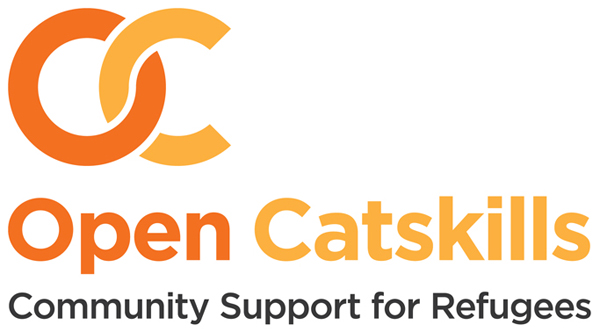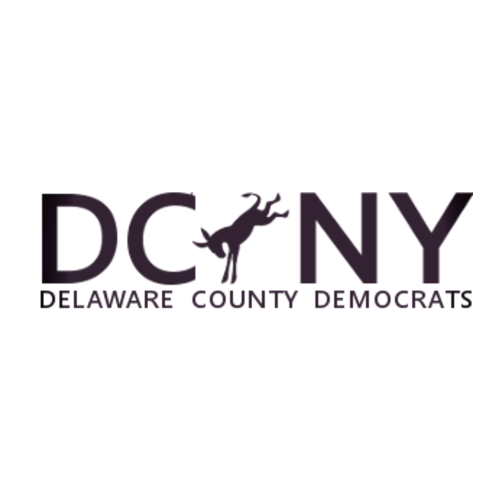
A group of local residents joined us recently to attend an Open Catskills Safety Training Workshop, joining with others who attended an earlier training—and together we learned so much we’re now asking this remarkable nonpartisan organization to schedule more trainings in more Delaware County towns. The organization, Open Catskills: Community Support for Refugees, was named to reflect the open-heartedness and generosity of our community.
Open Catskills achieved stellar success in just a few years from its work to support asylum in the U.S. for refugees from Russia and other countries, helping them to apply for citizenship and become integrated into Delaware County as productive members of our community members, as employees and students.
One of the most important needs in our area—amid all the national media attention and confusion about ICE raids and arrests—is for factual, reliable information about the rights of those affected, how they can legally express their rights if confronted, plus the rights of those witnessing an ICE encounter.
We have a right to record and document ICE proceedings if we respect certain legal precautions.
The brilliance of “RIGHTS & BITES,” Open Catskills’ Safety Training Workshop, is in its thoroughness, accuracy and practicality. A beginning training workshop covers the legal rights of individuals in all typical ICE situations, and gives guidelines for safe, legal navigation of encounters, wherever they occur—ICE agents seem to go everywhere!
A second training workshop is more advanced. Starting with a review of legal rights and best practices—for both those stopped by ICE and those documenting the encounter—it then moves on to conduct practice situations where each class member gets to role play being the person stopped, the person in uniform doing the stopping, and the person recording the event. It was so helpful rotating the different roles and working on what you would say, or could say, in each role. Practice is important! And memory can kick in, especially, in unexpected situations.
How safely or successfully encounters with ICE go has much to do with how familiar we and our fellow residents are about our rights in the U.S., regardless of our status.

The first Open Catskills workshop, held in May ’25 at SUNY-Delhi, was sponsored and coordinated by the Cornell Farmworker Legal Assistance Clinic, Cooperstown, one of the only clinics in the country focusing on rural immigration needs. Over 50 attendees were expertly led by Tasha Gottschalk-Fielding from Cornell*, who gave an overview of individuals’ rights within police and immigration enforcement systems and taught skills to assert these rights in practice, outlining specific ways we can help support BIPOC** and immigrant members of our community.
Two major takeaways reported by Open Catskills from the workshop: 1) Knowledge of our rights is our baseline strength, and 2) Documentation of what transpires when enforcement officers engage with us and our neighbors is our power. ***
Because of the success of “RIGHTS & BITES” and interest in putting its lessons into practice, Open Catskills launched a second workshop to do that on June 7th at SUNY-Delhi’s. Workshop attendance is free. In addition to using breakout groups to practice strategies for what to do when approached by ICE or the police, the program also covers best practices for onlookers, as well as opportunities for learning about incidents that have occurred.
Note that aside from an earlier incident in Sydney with a few immigrant arrests, our ear to the ground tells us there is a LOT of concern among us, but little activity to date. Hopefully that will continue, but we have a strong sense that Open Catskills is correct: being informed, aware and prepared is essential for both security and peace of mind.
